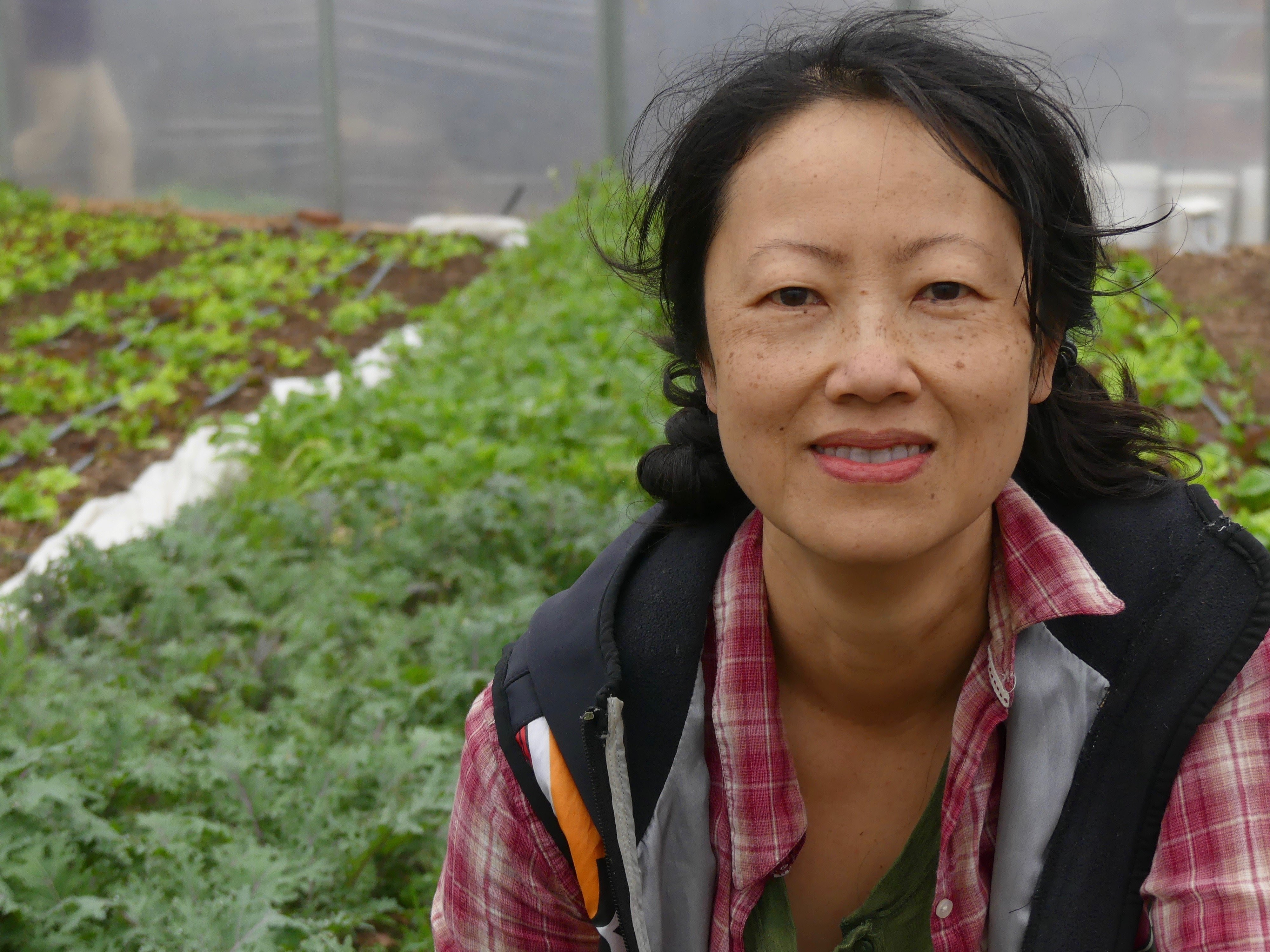Meet our new Veggie Farm Manager: Thanh Tran  Born in Saigon, Vietnam, the youngest of five children, Thanh Tran was six when her family was evacuated and flown to Oklahoma City. After college at Smith and OU, where she earned dual degrees in history and Information Systems, she moved to Denver and for 15 years, created a great career as an IT architect. Born in Saigon, Vietnam, the youngest of five children, Thanh Tran was six when her family was evacuated and flown to Oklahoma City. After college at Smith and OU, where she earned dual degrees in history and Information Systems, she moved to Denver and for 15 years, created a great career as an IT architect.
In 2010, she was ready for something else in her life. “We have a lifetime to learn and do,” she says, “and I was ready to learn and do something else. I decided to change my life. I took a 180-degree turn and spent two years traveling, renewing, re-orienting my awareness of what life means for me. It was necessary for me to start again with a clean slate of heart and mind.” Before she had determined her next career path, her father died and she moved home to Oklahoma City to be a full-time caregiver with her mother. “It felt good,” to be doing that, she says. Her mother died two years later, about the time her next-youngest sister was diagnosed with stage four breast cancer. Thanh had been learning about healthy living, self-care and food as medicine. She and her sister embarked on a plan to help her sister find a way to physically restore her metabolic processes and take the time to spiritually and emotionally deal with her life situation. After six months of a program of holistic immunotherapy, her sister began chemotherapy and responded so well that she was clear of cancer after a year, with no radiation or further chemo. At that point, a friend in upstate New York invited Thanh to consider working on Essex Farm. For the last two years, she has been involved in many aspects of vegetable farming there. But two considerations began pulling her back to Oklahoma City: two young great nieces who, she realized, will grow up fast and she’d like to spend more time with them. Too, there seemed to be something wrong about living in a rural setting working long hours on a farm to help supply food for people in the city. Back in Oklahoma City for the holidays, she began to explore the local food production here. Two weeks ago, she came to visit CommonWealth Urban Farms. It was exactly at the moment CommonWealth was interviewing people for the veggie farm manager position. Thanh applied, and began working in her new position late last week. “Growing food alone, or with a small group is difficult,” she says. “To have a community to do it together, like there is at CommonWealth, is important. This makes sense to me. It’s appealing to me to bring back our innate relationship with soil and food. We’ve lost that knowledge in urbanization. “We say the problem of growing food for people is solved. But it’s not solved. We need to bring balance back. We can’t segregate farm life from urban life. We have to open the conversation from a different perspective. It’s early in the proposition: Does urbanization work for humanity, for the Earth? We haven’t solved the food system situation. We don’t know if you can have 80 percent of a densely populated urban environment and 20 percent of the people growing the food in rural areas. “I like CommonWealth Urban Farms. This is where people live. Growing food as part of life needs to happen close to where we live. We don’t all have to be fully engaged, but we all need to be aware of how growing food works; also, farmers need to be in community and not isolated on the farm.” Already immersed in farm labor at CommonWealth, including working with volunteers, staff and a new group of apprentices, Thanh says she loves the physical work of farming. “It brings me joy. The work is at the heart of it. An extension of that is the passion to lead a meaningful life of service,” she says. “Besides, I love food!” Welcome, welcome, welcome, Thanh!—Pat |